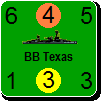pasternakski
Posts: 6565
Joined: 6/29/2002
Status: offline

|
Mogami, my friend, I hate to disagree with you because I have such great respect for your scholarship and commentary on UV (okay, we gave him the molasses, now let's feed him the sulfur).
Your abstract characterization of "strategy, operations, and tactics" is fine, but fails to support your later discussion. To say, for example, that "operations are actions utilizing material in an attempt to realize the strategic goal" and then later to add that "operations are deciding, what, where, when," attempting to contrast that with "tactics is the how" is to engage in self-contradiction and leaves you wound up in a syntactical and definitional morass on which your argument cannot stand.
What many of the posters here seek (and I hope I have made it clear that I do not want to go as far as many, primarily for reasons that agree with the main thrust of your analysis) is nothing more (or less) than consistency. They see numerous methods of taking tactical actions (what else can you call the means of creating barges and PT boats, for example?), and yet, feel frustrated at not being able to impose general, doctrinal constraints on their air units (whose specific, tactical-combat altitudes, among other things, they are free to dictate).
In particular, there is no demonstrable consistency, as far as I am concerned, between the theater commander being empowered to order an air operations officer to attack not only a particular base, but particular assets at that base, and not being able to instruct him on how to direct his anti-naval air assets (other than generally to say, "send 'em out to sink boats").
My b*tch is not a big one (she lost a lot of weight recently). All I want is what I perceive to be the same level of operational control over my anti-shipping assets as I already have over my other mission assignments.
I don't want to be able to second-guess my air ops officer's tactical decisions on the basis of my interpretation of current intelligence. All I want to be able to do is to instruct him, beforehand and operationally, on what guidelines to follow. I want to be able to say, "Keep your aircraft away from Rabaul, it's too dangerous up there, but be on the lookout for attempts to resupply bases to the west and southwest."
To say that my B-25J losses over Rabaul are my own fault for stationing them too close to that base is silly. You could as easily say that my child's burning her finger in the fire is my fault for having a fireplace in the house. Those aircraft are my best anti-shipping planes. I ought at least to be able to instruct their commander, "Tell the dumb little kids to keep their fingers out of there." I really would hate to see UV (and WITP) degenerate into a system where your planning depends on keeping your best aircraft back far enough away from major enemy bases that they won't inadvertently fly up there and get killed.
Furthermore, the arguments used against the assertion that it ought to be possible to give general ship-type attack priorities are equally nonsensical. In the historical campaigns in the Pacific theater, such guidance was always given (of what other use was the pre-mission briefing?). The errors, misidentifications, and silly attacks occurred primarily because the pilots thought they were seeing what they were supposed to be attacking (Neosho and Sims, for example, were reported as high-priority targets, and thus, were overwhelmed. If they had been identified properly, it is likely that they would have lived to be unimportant for another day).
That's my story, officer, and I'm sticking with it.
_____________________________
Put my faith in the people
And the people let me down.
So, I turned the other way,
And I carry on anyhow.
|
 Printable Version
Printable Version















 New Messages
New Messages No New Messages
No New Messages Hot Topic w/ New Messages
Hot Topic w/ New Messages Hot Topic w/o New Messages
Hot Topic w/o New Messages Locked w/ New Messages
Locked w/ New Messages Locked w/o New Messages
Locked w/o New Messages Post New Thread
Post New Thread